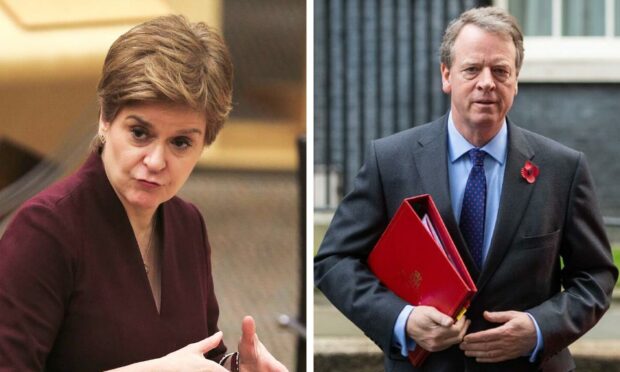Controversial laws making it easier for trans people to legally change their gender in Scotland have been sensationally blocked by the Conservative government at Westminster.
It is the first time the Scottish Secretary has stepped in to stop Holyrood passing laws in this way – and immediately set up a constitutional clash.
First Minister Nicola Sturgeon said: “This is a full-frontal attack on our democratically elected Scottish Parliament and its ability to make its own decisions on devolved matters.
“The Scottish Government will defend the legislation and stand up for Scotland’s parliament.
“If this Westminster veto succeeds, it will be first of many.”
The block was announced by Scottish Secretary Alister Jack, a Conservative MP in Rishi Sunak’s government, weeks after Holyrood sat late into the night to pass the new laws.
What did the laws aim to change?
The reforms intend to simplify the process for transmen and transwomen wishing to be legally recognised in their new gender.
Transgender Scots will be able to self-identify without a medical diagnosis, and will only have to live in their acquired gender for three months instead of two years.
Opponents claim women will be put at risk by making it easy for men to easily self-identify as women.
Vocal critics have included Harry Potter author JK Rowling, who controversially wore a T-shirt describing Ms Sturgeon as a “destroyer of women’s rights”.
Tories opposed the plans during the marathon three-day sitting before Christmas.
And one protestor staged a “flashing” stunt in anger at the laws passing in December.
Alister Jack sets out decision
In a statement on Monday evening, the Scottish Secretary confirmed he will trigger the process under the technical “section 35” part of the Scotland Act which underpins devolution at Holyrood. It means the reforms cannot go through for formal royal assent and become official law.
“After thorough and careful consideration of all the relevant advice and the policy implications, I am concerned that this legislation would have an adverse impact on the operation of Great Britain-wide equalities legislation,” he said.
“Transgender people who are going through the process to change their legal sex deserve our respect, support and understanding. My decision today is about the legislation’s consequences for the operation of GB-wide equalities protections and other reserved matters.
“I have not taken this decision lightly. The Bill would have a significant impact on, amongst other things, GB-wide equalities matters in Scotland, England and Wales. I have concluded, therefore, that this is the necessary and correct course of action.”
Mr Jack said the Scottish Government could amend their plans and return to parliament for another go.


